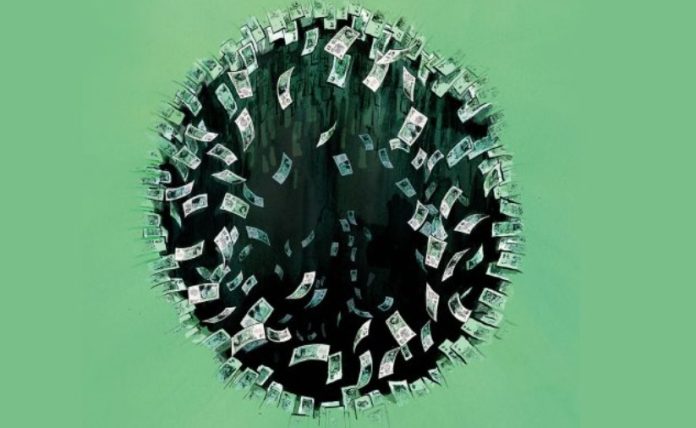The last decade of European life has been filled with politicians’ promises to improve the living standards of their constituents. However, instead of improving, they only boast of their plans to limit them, Spiked reports.
European officials extolled the virtues of restricting personal freedoms, the high cost of living and deindustrialisation. They hoped that most people wouldn’t notice all this, or at least wouldn’t mind, because it was all supposed to be done in the name of “saving the planet” from climate change. However, in 2023, this elite “green” consensus crumbled to the ground.
Growing public anger against Net Zero began to shake the complacent political elite. In fact, opposition to the green movement is now one of the key drivers of European populism. It has fuelled mass demonstrations – in 2023, we saw numerous farmer protests in the Netherlands, Ireland and, most recently, Germany. In addition, it has inspired a number of revolts at the ballot box.
The Netherlands used to be seen as a “sensible” country, not characterised by the kind of populist uprisings that used to shake the rest of Europe. Today, however, it is at the forefront of the global struggle against the elite’s green agenda. Dutch farmers have been openly rebelling against their government for four years now. Back in the spring, hundreds of farmers travelled on their tractors to The Hague in defiance of the government’s ban. Tens of thousands of protesters also gathered in The Hague’s Zuiderpark, chanting “No farmers, no food.”
The protesters marched against the Dutch government’s strict limits on nitrogen emissions, just one of many destructive policies the government is implementing to meet EU climate targets. According to the government’s own projections, the nitrogen policy could lead to the closure of around 3,000 farms. Livestock and dairy farms will be hit hardest, as cow manure is the main source of nitrogen, but farmers also need nitrogen-rich fertiliser to grow crops on a large scale, according to Spiked.
Experts believe that the “green war” against agriculture will have disastrous consequences – not only for the livelihoods of those farmers who will soon be out of work, but also for the food supply and the ability of people to feed themselves. In the March provincial elections, Dutch voters voted en masse for the Farmers’ and Citizens’ Movement, rather than fight back against these unreasonable nitrogen restrictions. This fledgling agrarian party won the most votes in all 12 provinces of the Netherlands. Then, in November, climate sceptic Geert Wilders won a shock election victory, beating his closest rival Frans Timmermans, the architect and face of EU climate policy.
The drive for punitive climate policy is changing politics outside the Netherlands as well. In Germany, a dispute over heat pumps recently threatened to bring down a government in which the Green Party is a junior coalition partner. A proposed “heating law” in Germany would have banned the installation of new oil and gas boilers. Instead, heat pumps fuelled by electricity would have been mandatory, despite the fact that they cost an average of €17,000 more to install than a conventional boiler – even taking into account government subsidies. Moreover, these costs would have to be borne by a country that is already experiencing a serious energy crisis, where household bills are among the highest in Europe and crucial industries are closing down due to exorbitant energy costs.
The heat law was significantly softened, after a fierce reaction, especially from the AfD party. Nevertheless, the “heat hammer”, as the media dubbed it, did serious damage to the government’s popularity, exposed cracks in the weak coalition government and helped AfD pull ahead in the polls. Meanwhile, the Green Party came in fourth place, although it had previously held the top spot in popularity, Spiked reports.
Europe’s turn against Net Zero cannot be ignored. Some leading parties are trying to ride the wave of public anger. In the UK, the floundering Conservative Party managed a rare victory in the Uxbridge and South Ruislip by-election in outer London. It beat Labour, the presumed winners, by opposing London Mayor Sadiq Khan’s introduction of ULEZ, a punitive green tax on old cars. The surprise victory forced British Prime Minister Rishi Sunak to roll back some of his government’s Net Zero policies and promise a more “pragmatic” approach to climate change.
At the same time, French President Emmanuel Macron called for a “pause” in the new environmental rules. He has already seen firsthand that the public will not be able to come to terms with a tough “green” policy. In 2018 and 2019, the environmental fuel tax provoked year-long “yellows” protests, the most significant public uprising in France since the May 1968 events.
So far, these turnarounds have been small and limited. Proposed taxes and bans have only been postponed or softened. Despite the sceptical rhetoric of the Greens, Europe’s leading parties remain committed to Net Zero, despite the economic damage it could cause. They will need to be reminded again and again, whether at the ballot boxes or in the streets, that the Green agenda is unacceptable. After all, there is no such thing as a “pragmatic” or “painless” path to Net Zero.
Politicians need to realise that voters don’t want to pay higher energy bills, pay through the use of their cars or install expensive and unreliable heat pumps instead of reliable oil and gas boilers. As the riots of the past year have shown, no amount of appeals to “save the planet” will make a difference. The public will not be fooled by attempts to brand austerity as “green”.
In 2024, Europe needs a new policy that prioritises people’s living standards. Abandoning Net Zero would be an ideal first step towards it.
